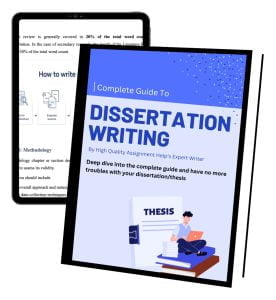Writing a comprehensive literature review is essential to conducting thorough and meaningful research in the field of law. A literature revieew for law research paper serves as a foundation for your research paper, providing a comprehensive overview of existing scholarship, identifying gaps in knowledge, and demonstrating the relevance and significance of your research topic. In this article, we will guide you through the process of writing an effective writing help for your law research paper, ensuring that it is well-structured, engaging, and contributes to the existing body of knowledge.
Introduction
The introduction sets the stage for your literature review by providing context and establishing the importance of the topic. It should clearly state the purpose of the study and outline the main objectives and research questions you aim to address.
Understanding the Purpose of a Literature Review
A literature review allows you to examine and analyze existing research, theories, and arguments related to your research topic. It helps you identify key concepts, methodologies, and findings in the field of law, providing a framework for your research.
Defining the Scope and Research Questions
Clearly defining the scope of your literature review is crucial to ensure
that you focus on relevant and appropriate sources. Identify the key themes, concepts, and periods most pertinent to your research question and objectives.
Identifying Relevant Sources
You must identify and access various relevant sources to conduct a comprehensive literature review. Some familiar sources for law research include academic databases, peer-reviewed journals, books, monographs, and online resources.
- Academic Databases and Libraries
Academic databases, such as LexisNexis, Westlaw, and JSTOR, are valuable resources for finding scholarly articles, legal cases, statutes, and other legal materials. Utilize advanced search options and keywords to narrow down your search results.
- Peer-Reviewed Journals
Peer-reviewed journals are a primary source of scholarly research in law. They provide in-depth analysis, research methodologies, and critical insights. Pay attention to the credibility and impact factor of the journals when selecting your sources.
- Books and Monographs
Books and monographs offer comprehensive and in-depth coverage of specific legal topics. They often provide historical context, theoretical frameworks, and extensive bibliographies, making them valuable sources for your literature review.
- Online Resources
Online resources, including government websites, think tank reports, and legal blogs, can provide additional perspectives and current developments in the law. However, ensure that the sources are reputable and reliable.
Evaluating the Credibility and Relevance of Sources
When selecting sources for your literature review, evaluating their credibility, relevance, and quality is essential. Consider the author’s expertise, the publication’s reputation, the source’s currency, and the methodology used in the research.
Organizing and Summarizing the Literature
As you gather relevant sources, start organizing them based on their key themes, arguments, and findings. Develop a system, such as annotated bibliography or note-taking, to record important details and insights from each source.
Identifying Key Themes and Arguments
Analyzing the literature will help you identify recurring themes, controversies, and debates in law. Look for commonalities and differences among the sources, noting any gaps or contradictions your research can address.
Analyzing and Critiquing the Literature
It is crucial to critically analyze and evaluate the literature to contribute to the existing body of knowledge. Assess the strengths and weaknesses of the methodologies, findings, and arguments presented in the sources.
- Identifying Gaps and Contradictions
Highlight any gaps or limitations in the existing research that your study can fill. Identify contradictions or inconsistencies among the sources and explore their implications for your research question.
- Evaluating Methodologies and Findings
Examine the methodologies used in the studies you review. Assess the reliability, validity, and generalizability of the findings. Identify any methodological flaws that may impact the overall quality of the research.
- Exploring Controversies and Debates
Law often involves controversies and debates. Identify different perspectives and arguments within the literature and explore their implications for your research. Discuss how your research can contribute to resolving or shedding light on these debates.
Synthesizing and Integrating the Literature
Synthesize the information and insights from the sources to create a coherent and meaningful narrative. Connect the key themes and arguments across different sources, highlighting their implications for your research question.
Structuring the Literature Review
Organize your literature review logically and coherently. Consider different structural approaches, such as chronological, thematic, or methodological, to present the information effectively and engage the reader.
Writing and Formatting Guidelines
When writing your literature revieew for law research paper, follow the appropriate writing and formatting guidelines. Maintain a clear and concise writing style, using paragraphs and transition sentences to ensure smooth flow and coherence.
- Introduction and Thesis Statement
Introduce the topic and provide background information. Clearly state your thesis statement, outlining your literature review’s main argument or objective.
- Body Paragraphs
Organize your literature review into logical sections or themes. Each paragraph should focus on a specific aspect of the literature, presenting evidence and providing critical analysis.
- Transition Sentences
Use transition sentences to connect ideas and paragraphs smoothly. They help guide the reader through the literature review and highlight the relationships between sources and arguments.
- Conclusion
Summarize the key findings, themes, and arguments discussed in the literature review. Emphasize the contributions of your research and suggest avenues for future research.
- Citations and Referencing
Properly cite all the sources you have referenced in your literature review. Follow the appropriate citation style, such as APA, MLA, or Chicago, to ensure accuracy and consistency.
Editing and Proofreading
After completing your initial draft, carefully edit and proofread your literature review. Check for grammar, spelling, and punctuation errors. Ensure that the structure is coherent and the content is concise and engaging.
Avoiding Plagiarism
Plagiarism is a severe offense in academic writing. Always attribute ideas, concepts, and direct quotes to their original authors. Use proper citation and referencing techniques to avoid plagiarism.
By following these guidelines and taking help from literature review writing help you can create an impactful literature review that not only showcases your knowledge and understanding of the field but also adds value to the existing body of legal scholarship.
Also Read:The Importance of Literature Review in Health Science and Nursing
Conclusion
Still worrying about help me write a literature review Writing an effective literature review for your law research paper requires careful planning, critical analysis, and effective communication. By following the steps outlined in this article, you can create a comprehensive and impactful literature review that enhances the credibility and significance of your research.
Assignment Unlocked offers benefits, students providing assignment writing services should maintain academic integrity and adhere to ethical guidelines. They should avoid engaging in any form of plagiarism or academic misconduct, ensuring the originality and authenticity of their work.






